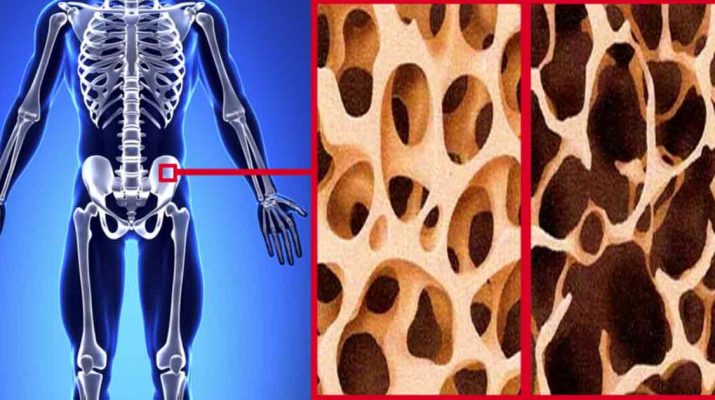Milk is a beverage that many people believe is good for the bones. They even push their children to drink it. But, the milk offers exactly the opposite. It promotes disease, especially for the bones. So, how is this possible? We have been drinking milk for ages, what is wrong with it today?
Yes, we have consumed completely natural milk. That milk is healthy and always will be. But, drinking pasteurized milk is not as nearly as beneficial as the organic milk. In fact, it can affect the bone health in various ways.
Furthermore, the dairy industry has made out the milk to be great for the health, when in reality, many researchers and scientists claim that this was only propaganda.
Research
According to some studies in Sweden, cow’s milk can affect the bone health if someone consumes it for a longer time. The scientists published their research in the British Medical Journal. In their study, 45,339 men and 61,433 women from the age of 39 to 74, participated.
For 11 years the participants drank cow’s milk. As research claims, the participants had an increased chance of suffering from bone fractures during the period when they drank the milk. However, the risk was more serious for women.
Therefore, women who drank more than 3 glasses of milk every day had doubled the chance of bone fractures.
Why Do We Still Drink Milk?
Many people believe the milk is safe because of the pasteurization. However, that process destroys a lot of bacteria and gets rid of any evidence of dirt and filthy dairy particles. Furthermore, it is far cheaper to produce dirty milk and destroy the bacteria rather than to keep the cows and the milk healthy and clean.
Moreover, the process of pasteurization is long. The milk goes through ‘clarification,’ filters, ‘bactofugation,’ and even ‘deariation.’ These are all treatments that require heat from 100 to 175 degrees Fahrenheit.
On top of all this, these treatments are the ideal way to cover any bad sanitary conditions. Therefore, there is a 44% chance, in every 125 pasteurized milk, to find 2200 organisms of coliforms and fecal bacteria.
Furthermore, pasteurization destroys the vitamins B and C and greatly diminishes the nutritional qualities of the milk. Also, the milk contains no calcium because of this treatment. This happens due to the chemical reaction between the sugars and proteins.
It occurs when the heat decolorizes and browns the milk. In addition, all the antibodies, beneficial hormones, enzymes, and proteins get destroyed in the process. That is why we end up with a ‘’lifeless’’ milk.
Why Do We Need Milk
The enzymes in the milk help digest lactose and proteins. It also helps the body absorb the vitamins. Therefore, consuming pasteurized milk can’t boost our overall health. In fact, it has no nutritional value, and it can damage our health.
So, we can’t rely on something that can’t be beneficial for the health and body.
Pasteurized Milk and Osteoporosis
Pasteurized milk doesn’t contain enough magnesium to boost the calcium absorption in the body. Even if you consume 1200 mg of dairy calcium in one month, your body won’t even absorb a third of the nutrients it needs.
Therefore, this type of dairy product forces the body to absorb low levels of calcium and affect the health of the bones. In the long-term, this could lead to osteoporosis and bone fractures. This may be the answer to why Americans have the highest risk of osteoporosis despite drinking the most milk in the world.
In fact, there is a huge possibility that the USA, Sweden, Canada, Norway, New Zealand, and Australia have the highest rate of developing osteoporosis due to their pasteurized milk.
Most Obvious Explanation
The most obvious explanation of for this negative effect in the milk is the damaging inflammation. This type of inflammation occurs because of the galactose. This is a breakdown product of lactose which is the main sugar in the milk.
So, the more milk we drink, the more inflammatory molecules we will have in the urine. Furthermore, a study claims, women who drank pasteurized milk had a higher chance of suffering from bone fractures compared to the women who consume yogurt and cheese.
Why? Well, because the cheese and yogurt contain less galactose and lactose than the milk. In other words, this result supports the inflammation hypothesis.
What do you think? How often do you drink milk? Have you tried organic milk? Let us know in the COMMENTS and SHARE this post with family and friends.

